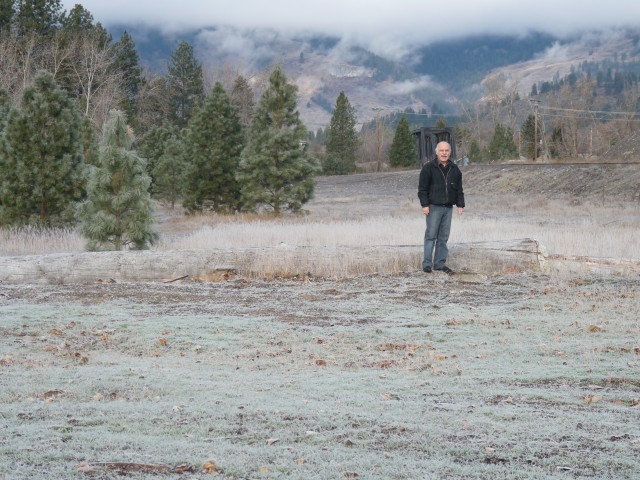One free deer for every garden plot in new community gardens
For every membership purchased in the new Grand Forks community garden project, the gardener will receive access to one four foot x 10 foot plot and ownership of one deer said Patti Bevilaqua, society director. Bevilaqua and David Janzen did a presentation at the last city council meeting on Feb. 8 to update the council about their progress to date.
The presentation provided interesting examples from Vancouver and around the world for council and the gallery present. In Vancouver alone there are 33 gardens, and 18 in Kelowna. The examples demonstrated the variety of ways to develop the local garden with one example even including a children’s play area.
Bevilaqua said there’s potential for local community gardens to even become an outdoor classroom for youth involvement; seniors could share their stories of gardening, preserving, cooking; and there are hopes of pairing up knowledgeable seniors who love gardening with single parent families or others who may want to learn from them. The project is a part of the Grand Forks and Boundary Regional Agricultural Society (GFBRAS).
“It was so easy to find examples of community gardens around the world. There are about 33 examples of gardens in the downtown Vancouver area alone,” said Bevilaqua in her presentation. “In Burnaby one example has 372 plots just in one garden. So what do we need for a community garden? Well, some land and some volunteer labour.
“It can be an educational resource. We are very interested in bringing speakers in to talk about different composting techniques, or different crops that eventually farmers may pick up that may be quite useful in the Boundary area. It’s a gathering space for recreation. For people who live in apartments or maybe a basement suite this allows them the opportunity to, maybe, grow their own food.”
The city has dedicated a lot at the corner of 10 Street and 66 Avenue in the Ruckle area. Membership of $15 will give a person one four foot x 10 foot plot and a vote at the society’s annual general meetings. The current location has the potential for 24 plots, hoop house (greenhouse) that is planned to be 20 x 40 feet, space to plant berries and shrubs, washrooms, a place to hold meetings, and a raised bed for seniors or people with disabilities to be able to plant their own beds.
“There is of course a limited number of garden beds and for everybody who gets a bed gets ownership of one deer!” joked Bevilaqua. “The only way this type of endeavour is going to work for all those stakeholders who are involved in it is to come to the meetings, ask questions, make comments, and raise concerns. We are set to open May 1 of this year. We are currently discussing building the hoop house for people involved to do their first planting.”
The group has applied for a grant from Walmart of $10,000, Phoenix Foundation funding, and a legion grant. They are requesting a grant-in-aid of $4750 from the city that will assure the gardens are open May 1.
Councillor Chris Moslin clarified whether the in-kind that city can give is a part of the grant request. Janzen said that the group will need: fresh water line (that the city has already agreed to provide), $1000 for line from fire hydrant, as well as materials for building the hoop house and fencing.
Councillors congratulated the group on the plan and the work they have done to date. Cher Wyers, city councillor, volunteered to help with the project and requested a plot. Janzen said that in the last two weeks 10 – 15 people have already said they want a plot. The group hosted a public meeting on Wednesday, Feb. 10 meeting at RDKB office board room that 20 people attended including Irene Perepolkin regional director for area D, and Chris Moslin and Joy Davies from City Council as well as George Longden from the trails society.
The project stemmed from the agriculture team of the city’s economic development task force and was taken under the wing of GFBRAS. Davies congratulated team on their success.
Two more gardens are in the works in Greenwood and Midway with the support of GFBRAS.
“We have looked at first steps in the community gardens and we feel it is most important to have a lease occupancy in place before we proceed and farther. We all felt a 20-25 year lease would best suit the needs of the communities,” said Doug Zorn, president of GFBRAS and one of the directors spearheading this project. “Once that is in place we will be proceeding with hoop houses on each site as we see this as a good first step in establishing a meeting, and learning location.”
The hoop houses will be made possible through local businesses and volunteer labour, explained Zorn. Each location will search for funding and GFBRAS is planning to approach the Regional District of Kootenay Boundary for funding for all the gardens in the region since even though they may be located in cities and municipalities they will be used as an educational site for all residents.






















